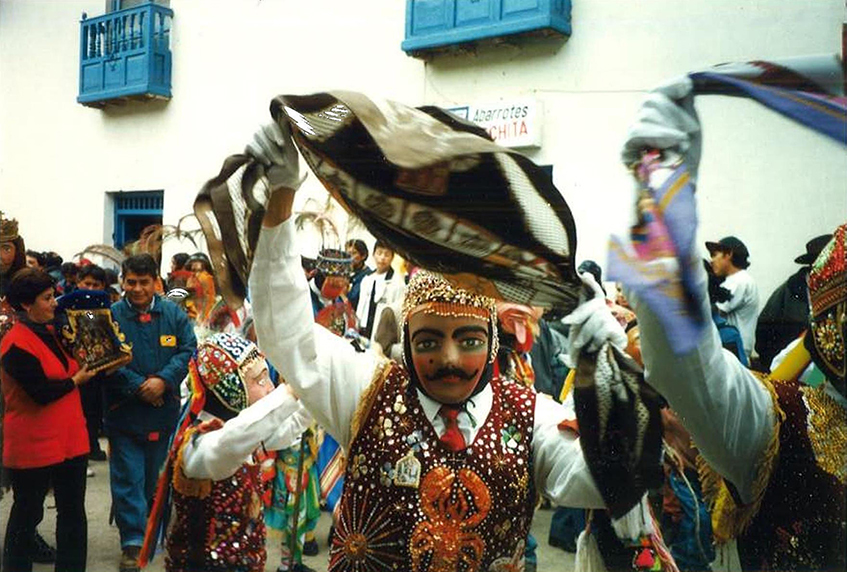PROVIDENCE, R.I. [Brown University] —The Andrew W. Mellon Foundation has awarded Brown a $225,000 grant to launch a Sawyer Seminars series for the 2018-19 academic year called “Race and Indigeneity in the Americas.” The University’s Center for Latin American and Caribbean Studies (CLACS) will be instrumental in organizing the series.
The funds from Mellon’s Sawyer Seminars program, which supports research on the historical and cultural sources of contemporary developments, will allow Brown scholars and community members to examine scholarship on racialization — the process of instilling consciousness of race distinctions and attributing ethnic or racial identities to individuals or groups — in North and South America.
“From Canada to Argentina, countries have grappled with similar histories of colonialism, extraction and exploitation — and still are,” said Jessaca Leinaweaver, director of CLACS, a Brown professor of anthropology and organizer of the series. “The idea behind the series is to think about how scholarship on racialization has come together, what blind spots there are and what unstated assumptions underlie that work.”
The goal, according to Leinaweaver, is to chart a path forward for new research on a complex, well-studied topic that she said “sometimes seems to rehearse the same dilemmas over and over again.” The project is particularly important, she said, during a time of global and national upheaval.
“Questions of race, indigeneity and racism are urgent across the U.S., exemplified by Black Lives Matter, #NoDAPL, executive attempts to halt immigration from Muslim-majority countries and by immigrants of color, and other key issues of this historic moment,” Leinaweaver said.

Over the course of the 2018-19 academic year, CLACS will host three daylong workshops for faculty, postdoctoral fellows, graduate students, undergraduates and members of the public. Each seminar will be framed by a set of questions that scholars from the social sciences and humanities will ask, including: What are the questions we’re asking? How do we ask them? Who answers these questions, and who listens to the answers? Participants will explore scholarship on race from the perspective of multiple disciplines.
These question-based workshops, Leinaweaver said, will aim to create an understanding of how we have arrived at current understandings of race and indigeneity.
In addition, eight monthly seminars, each held at a different Brown center or institute, will complement the more theoretical work accomplished in the workshops. The series also supports a postdoctoral research associate, two graduate fellowships, performances and an exhibit, all of which will be held on campus for members of the Brown community as well as the general public.
The overall goal, according to Leinaweaver, is to expand scholarly dialogue on ethnic and racial identities as a pan-American and deeply historical process in order to shed light on urgent contemporary questions of race, indigeneity and racism.
The series will allow participants to “read the scholarship backwards” to better understand the cultural and historical context in which it was written — asking what experiences and assumptions, for example, affected the way 17th-century Spanish Christians wrote about Inca life and history. By reconsidering fundamental questions and conventions through the scholarship and through the approaches of a range of social sciences and humanities disciplines, Leinaweaver said, the series will position participants to energize research going forward.
“The questions we are asking work really well with scholarship that is being done at the Population Studies and Training Center, the Institute at Brown for Environment and Society and the Center for the Study of Race and Ethnicity in America,” Leinaweaver said.
To plan the full series of events for 2018-2019, a steering committee will be convened in the coming months to recommend participants from a range of nations, backgrounds and disciplines. Leinaweaver hopes to involve the John Carter Brown Library, the Native American and Indigenous Studies Initiative and other departments, resources and centers on campus.
Leinaweaver said that including scholars from different disciplines will allow participants to ask: “How do you, as a historian, answer this question? How might you as an anthropologist or political scientist answer that question?” Learning from experts in other fields can also help to point out gaps in one’s own, she said.
“This is such a living topic,” Leinaweaver said. “And it’s not one that is going away.”